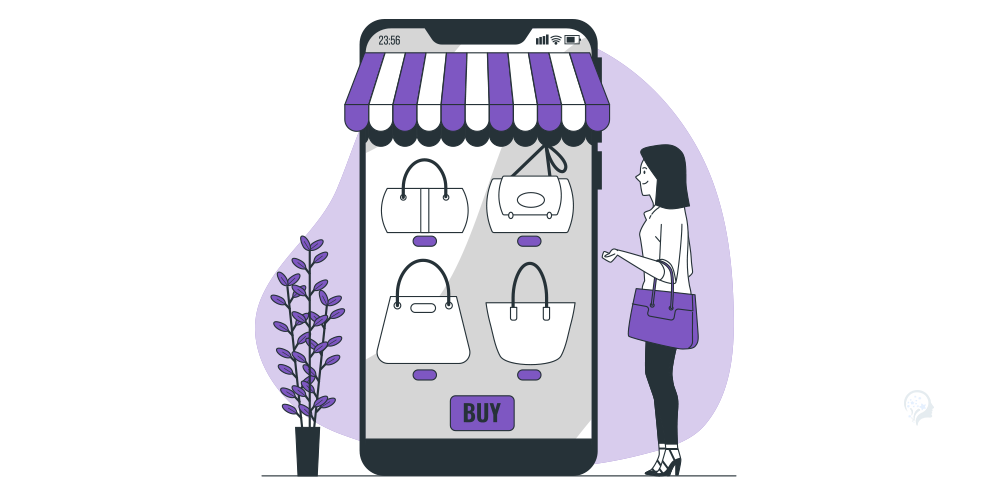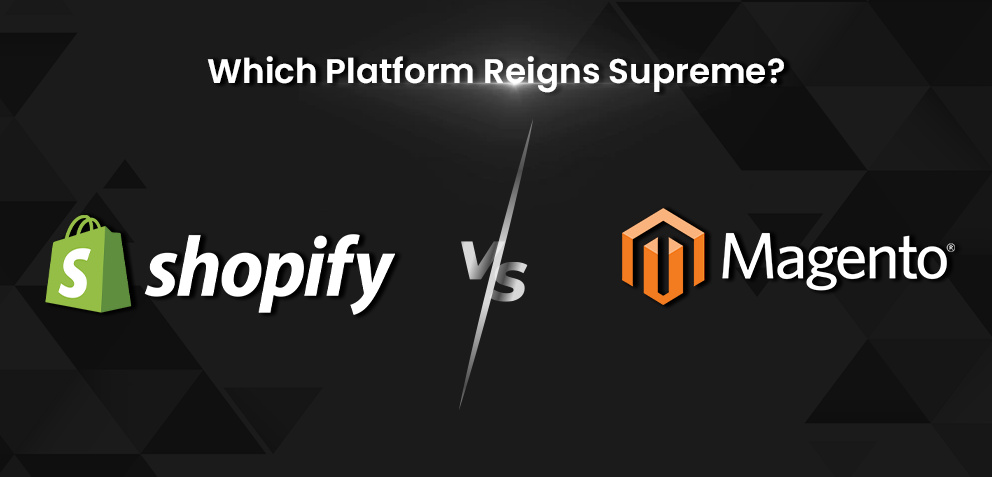Voice Commerce: The Future of Shopping in eCommerce Apps
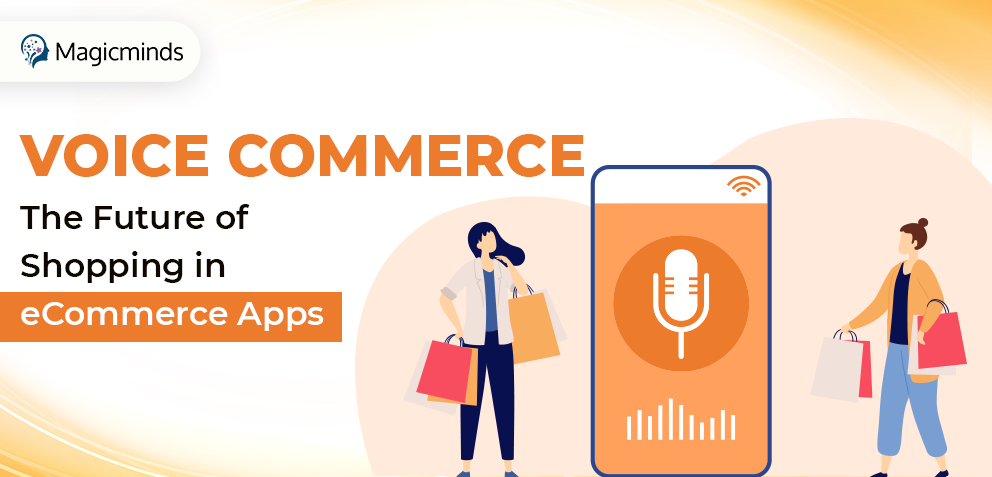
Tags
 Stay In-the-loop
Stay In-the-loop
Get fresh tech & marketing insights delivered right to your inbox.
Share this Article
Category
- .Net Developer
- Adtech
- Android App Development
- API
- App Store
- Artificial Intelligence
- Blockchain Development
- Chatbot Development
- CMS Development
- Cybersecurity
- Data Security
- Dedicated Developers
- Digital Marketing
- Ecommerce Development
- Edtech
- Fintech
- Flutter app development
- Full Stack Development
- Healthcare Tech
- Hybrid App Development
- iOS App Development
- IT Project Management
- JavaScript development
- Laravel Development
- Magento Development
- MEAN Stack Developer
- MERN Stack Developer
- Mobile App
- Mobile App Development
- Nodejs Development
- Progressive Web Application
- python development
- QA and testing
- Quality Engineering
- React Native
- SaaS
- SEO
- Shopify Development
- Software Development
- Software Outsourcing
- Staff Augmentation
- UI/UX Development
- Web analytics tools
- Wordpress Development
“Alexa, order a medium pepperoni from Domino’s with garlic bread on the side!”
Imagine you’ve had an exhausting day at work, and the last thing you want to do is cook. Instead of reaching for your computer or mobile device, just say, “Alexa, order a pizza.”
Voila! With that simple command, your pizza is on its way.
This is the essence of voice commerce. It eliminates the need to type on a keyboard or touch a screen; you can simply ask your digital voice assistant questions or issue a command.
This blog will highlight the ABCs of voice commerce in the eCommerce landscape.

Table of Contents
The Rise of Voice Assistants and the Vocal Revolution of eCommerce
What is Driving the Voice Commerce Phenomenon?
Integration with eCommerce Apps
Why Do People Love Voice Commerce?
Challenges and Considerations in Voice Commerce
Privacy and Security – Keeping Your Info Safe
Voice Recognition Accuracy – Making Sure They Understand You
Integration with Existing Systems – Making Everything Work Together
Adoption Barriers – Helping Everyone Get Used to It
Let’s Look at How Some Global Brands Leveraged Voice Commerce
What is Voice Commerce?
Voice commerce, often termed “v-commerce,” marks a transformative shift in how consumers engage with digital platforms for shopping.
This approach enables individuals to shop and interact with eCommerce platforms solely through spoken commands, eliminating the need for traditional text-based interfaces and manual inputs.
The Rise of Voice Assistants and the Vocal Revolution of eCommerce
Voice assistants have seen remarkable growth, becoming integral to our daily lives. Our digital landscape is evolving, enveloping us in adaptive intelligence that caters to our unique requirements. It goes beyond mere web searches.
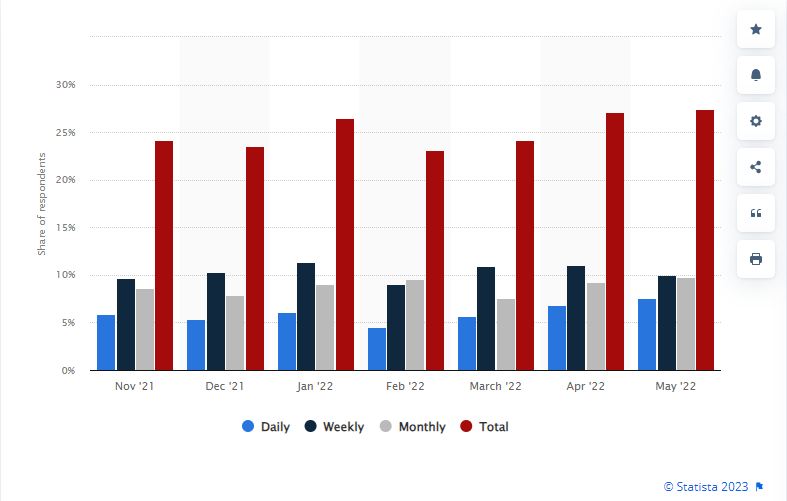
Source: Statista
Platforms like Cortana, Siri, Google Assistant, and Alexa are transforming into personalized digital assistants. They schedule appointments, adjust thermostats, and even order our favorite pizza, tailoring technology to individual needs.
This transformation is driven by their ability to understand and respond to natural language, making them accessible and trustworthy. These voice assistants are now present in various devices, from smartphones to smart speakers, enhancing their ubiquity.
‘Your brand needs to have its own agents that can talk directly to customers and to converse across multiple digital assistants.’ – Satya Nadella, CEO, Microsoft.
Naturally, voice ecommerce has emerged as an extension of this trend, redefining how we shop online. It offers a conversational and personalized shopping experience, streamlining transactions and boosting accessibility.
What is Driving the Voice Commerce Phenomenon?
Over a third of US households own smart speakers, with 65% using them for shopping.
- Consumer Adoption: More and more people are using voice assistants like Alexa and Siri, and this is making voice ecommerce really popular. Per Statista, there were around 142 million users of voice assistants in the United States in 2022, nearly half of the country’s population.
- Consumer Preferences: People like things to be easy and fast when they shop. Voice commerce is becoming popular because it’s easy to use and quick.
- Advancements in Tech: Technology has improved, making voice commerce work really well. Voice assistants can understand us better through machine learning and natural language processing.
- Enhanced User Experience: With voice commerce, shopping is easier because you can just talk to your device like you’re talking to a friend. It listens and helps you find things you like.
- Retailer Advantage: Stores that use voice commerce can stand out and provide a fun and unique shopping experience. This allows them to compete with others.
How Does Voice Commerce Work?
As a consumer, you might think voice commerce is a breeze – just using your voice, right? Well, not quite. There are a few key elements to ensure a seamless experience.
- You’ll need a device equipped with a voice assistant, like a smartphone or a smart speaker.
- Your voice assistant also needs time to “learn” how you prefer to interact.
- If you plan to make purchases, you should store your payment info in a digital wallet on your device for speedy transactions.
Once everything is in place, voice ecommerce becomes a walk in the park. Just utter your activation phrase (like “Okay, Google!“) and clearly express your intention to your trusty digital assistant.
Voice-Activated Devices
Voice commerce primarily operates through voice-activated devices such as smart speakers (e.g., Amazon Echo, Google Home), smartphones, and other gadgets equipped with virtual voice assistants like Alexa, Siri, or Google Assistant.
These voice assistants are the bridge between users and eCommerce platforms. They listen to your voice and can do things when you ask them to.
Integration with eCommerce Apps
When you want to shop with your voice, stores connect their shopping apps to these voice assistants. This way, you can inquire about product details, availability, and pricing and even receive personalized recommendations based on your preferences.
Voice commerce applications often employ natural language processing (NLP) to comprehend user queries effectively.
Security and Privacy Concerns
Voice commerce systems handle sensitive data like payment information and personal details. Ensuring robust security measures, encryption, user authentication, and secure payment gateways are essential to secure voice commerce.
Sometimes, there are also worries about things like accidental voice recordings and data collection, so companies are extra careful to gain your trust.
Future Developments
Voice commerce is still getting better! In the future, these voice assistants will get even more competent at understanding you and making shopping easier.
You can use them for more things in your home, like home security, controlling devices, and streaming media, like several brands, such as Amazon, are doing with Alexa. As more and more businesses use voice shopping, you’ll see and hear about it more. It’s an exciting way to shop!
Why Do People Love Voice Commerce?
- Voice commerce is super convenient. You don’t have to type or tap on your phone; you just talk.
- It’s like having a shopping buddy who knows what you like. Voice assistants give recommendations that fit your style, making your shopping experience more special.
- Everyone can join the fun! Voice commerce makes shopping easier for people who might find typing or tapping tricky, like those with disabilities. It’s all about being inclusive.
- Voice shopping is fast. You can order things, check prices, and get info quickly. No more waiting around or searching for stuff – it’s your voice at your fingertips.
RELATED READ: Exploring the Future of eCommerce Trends in 2023
Challenges and Considerations in Voice Commerce
Let’s look into some predictable obstacles in voice commerce.
Privacy and Security – Keeping Your Info Safe
When you talk to your device for shopping, it’s essential to ensure your personal information stays private and secure. Special measures, like secret codes and secure payment methods, help protect your info.
Voice Recognition Accuracy – Making Sure They Understand You
Imagine if your device didn’t understand you and ordered the wrong things. Accuracy is crucial in voice shopping. It’s like teaching your buddy to appreciate your voice perfectly. This way, you get what you want without mix-ups.
Integration with Existing Systems – Making Everything Work Together
Getting voice shopping to work smoothly with the stores and websites you like can be a bit tricky. It’s like connecting all your gadgets at home. Businesses need to plan carefully to make sure everything runs smoothly.
Adoption Barriers – Helping Everyone Get Used to It
Not everyone is used to shopping with their voice, and that’s okay. Some people might be unsure or worried about their privacy. Businesses must make it easy for everyone to try voice shopping so people feel comfortable and excited to use it.
It’s like showing your friends a cool new game – you want to make it easy for them to join in the fun.
Let’s Look at How Some Global Brands Leveraged Voice Commerce
Amazon’s Alexa
Alexa, Amazon’s voice-activated digital assistant, has significantly impacted voice commerce in the United States. Through seamless integration with eCommerce platforms, Alexa has transformed how Americans shop online.
It’s made shopping remarkably easy, allowing people to buy, reorder, and inquire about products using simple voice commands. Alexa’s artificial intelligence capabilities, combined with its ability to learn user preferences, enable highly personalized shopping, making it a game-changer in online retail.
Alexa and Domino’s
The collaboration between Alexa and Domino’s Pizza has made a remarkable mark on voice commerce, especially in dining. Now, ordering your favorite pizza is as simple as conversing with your Alexa-powered device.
This innovative approach has brought a new convenience to pizza delivery, avoiding the hassle of phone calls or app browsing. Also, it showed how this tech could disrupt the food industry.
Alexa and Marriott
The integration of Alexa with Marriott Hotels catalyzed a never-before evolution. By integrating Alexa into guest rooms, Marriott has redefined the guest experience, enabling guests to make requests, get information, and control in-room amenities using voice commands.
This innovative approach enhances guest convenience and satisfaction and sets a precedent for the hospitality industry, elevating customer service.
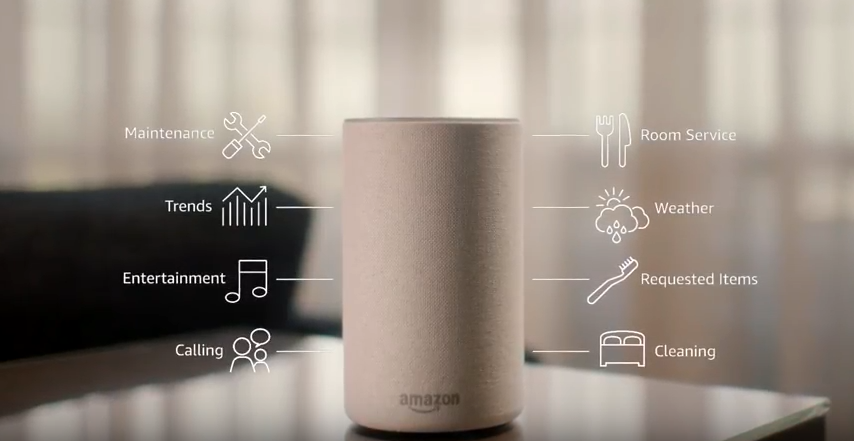
Voice commerce left a positive mark on Northwell Health, one of the largest healthcare systems in New York. Northwell Health has improved patient experiences and streamlined internal processes by integrating voice commerce technology into its healthcare services.
Patients can now access appointment information, prescription refills, and health advice through voice-activated devices, reducing the administrative burden on staff and providing faster, more convenient healthcare services.
The Future of Voice Commerce
The future of voice commerce sure looks exciting! It will make shopping more accessible, personalized, and filled with new ideas. As technology improves, more people will start using voice commerce to shop online. This will change the way we use our devices and buy things. It’s not just about shopping; it’s like a big makeover for online stores. And to help businesses to build such advanced online stores, companies like Magicminds can be a one-stop shop. The experts here are proficient in working with trending technologies and delivering results beyond expectations.

